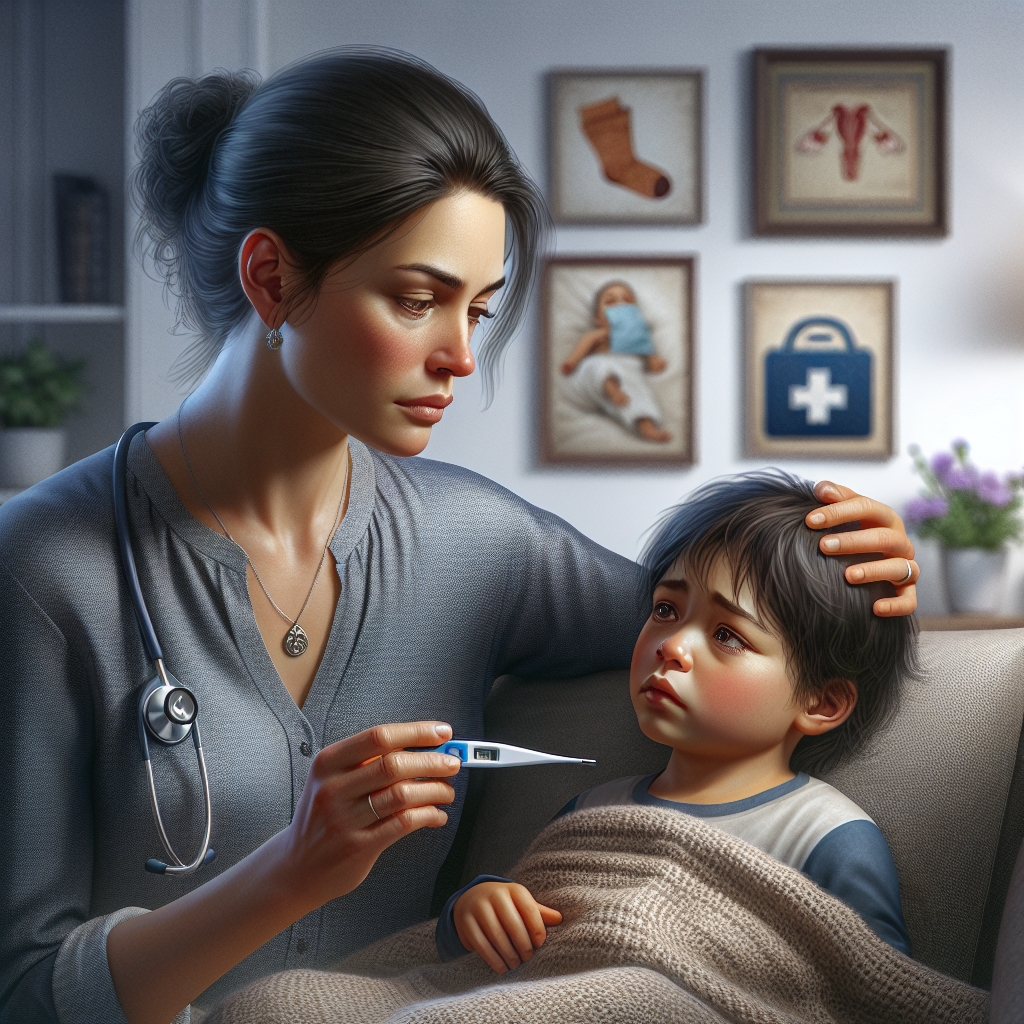Introduction
When your child is sick, it can be a daunting and stressful experience. As a parent, you want to make sure you’re making the right decisions for their health and well-being. One question that often arises is when to take your sick child to the emergency room (ER). This article aims to provide guidance on when it’s appropriate to seek emergency care for your child and when other medical options may be more suitable.
Table of Contents
- Recognizing severe symptoms
- Serious injuries
- Persistent high fever
- Difficulty breathing
- Seizures
- Signs of dehydration
- Frequently Asked Questions
- Conclusion
Recognizing severe symptoms
When your child is sick, it’s important to pay attention to the severity of their symptoms. Some symptoms may indicate a more serious underlying condition that requires immediate medical attention. These symptoms include:
- Difficulty breathing
- Severe abdominal pain
- Uncontrolled bleeding
- Changes in consciousness
- Severe allergic reactions
- Head trauma or loss of consciousness
If your child is experiencing any of these symptoms, it’s crucial to take them to the emergency room as soon as possible. Delaying medical care in these situations can lead to further complications and potentially life-threatening conditions.
Serious injuries
Injuries can happen at any time, especially when children are involved in physical activities. While minor injuries can often be treated at home, there are certain situations where immediate medical attention is necessary. These include:
- Broken bones
- Deep cuts or wounds
- Head injuries
- Severe burns
- Injuries involving the eyes
If your child has sustained a serious injury, it’s important to take them to the emergency room for evaluation and treatment. Prompt medical care can help prevent further complications and ensure proper healing.
Persistent high fever
Fever is a common symptom in children and is often a sign that their body is fighting off an infection. In most cases, a mild fever can be managed at home with over-the-counter medication and plenty of rest. However, if your child has a persistent high fever that does not respond to treatment, it may be necessary to seek medical attention. High fevers can be a sign of a more serious underlying condition that requires further evaluation and treatment by a healthcare professional.
Difficulty breathing
Difficulty breathing is a serious symptom that should not be ignored. If your child is struggling to breathe, wheezing, or has rapid breathing, it’s important to seek immediate medical attention. Difficulty breathing can be a sign of a severe respiratory infection, asthma attack, or other serious respiratory condition. The emergency room is equipped to handle these types of emergencies and can provide the necessary medical interventions to ensure your child’s breathing is stabilized.
Seizures
Seizures can be a frightening experience for both the child and the parent. If your child experiences a seizure for the first time or has a prolonged seizure lasting more than a few minutes, it’s important to seek immediate medical attention. Seizures can have various causes, including epilepsy, infections, or head injuries, and require medical evaluation to determine the underlying cause and appropriate treatment.
Signs of dehydration
Dehydration can occur in children when they lose more fluids than they take in. It can be a result of vomiting, diarrhea, or not drinking enough fluids. Signs of dehydration include:
- Dry mouth and lips
- Decreased urination
- Dizziness or lightheadedness
- Sunken eyes
- Extreme thirst
If your child is showing signs of dehydration, it’s important to seek medical attention, especially if they are unable to keep fluids down or have been experiencing prolonged vomiting or diarrhea.
Frequently Asked Questions
1. Can I call my child’s pediatrician before going to the ER?
Yes, in some cases, it may be appropriate to call your child’s pediatrician for guidance before heading to the emergency room. They can assess the situation over the phone and provide advice on whether immediate medical attention is necessary or if there are other options to consider.
2. What if I’m not sure if my child’s symptoms are severe enough for the ER?
If you’re unsure whether your child’s symptoms warrant a trip to the emergency room, it’s best to err on the side of caution and seek medical attention. It’s better to have a healthcare professional evaluate your child and determine if further treatment is necessary.
3. Is it better to go to an urgent care center instead of the ER?
In some cases, an urgent care center may be a more appropriate option for non-life-threatening illnesses or injuries. However, if your child is experiencing severe symptoms or has a potentially life-threatening condition, it’s best to go to the emergency room where they have the necessary resources and expertise to handle such situations.
Conclusion
Knowing when to take your sick child to the emergency room can be a challenging decision. By recognizing severe symptoms, serious injuries, and signs of dehydration, you can make an informed choice about seeking emergency care. It’s always better to be safe than sorry when it comes to your child’s health. If you’re ever in doubt, don’t hesitate to seek medical attention, and remember that healthcare professionals are there to help you make the best decisions for your child’s well-being.




